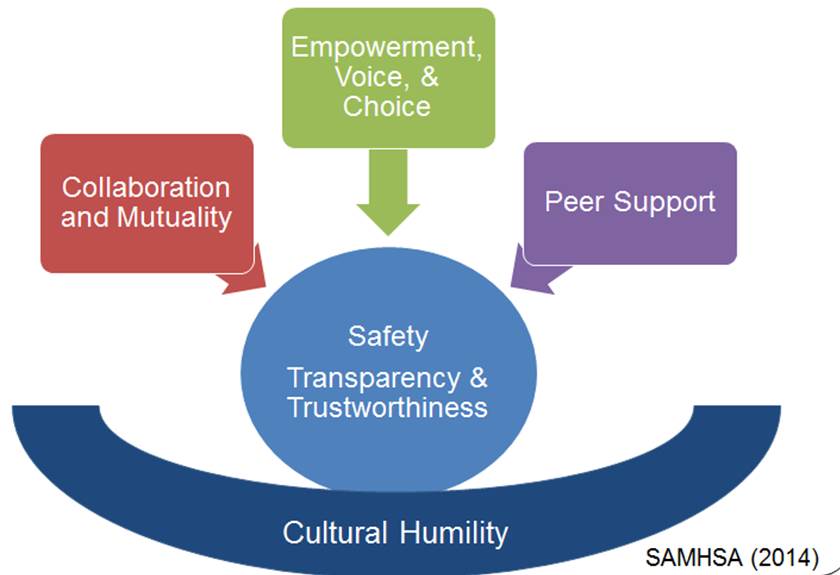What is a Trauma-Informed School?
A trauma-informed school REALIZES the prevalence and impact of trauma. It RECOGNIZES signs of trauma and the need for learning support. And finally, it RESPONDS to avoid RE-TRAUMATIZATION and promote healing by integrating principles of trauma-informed care into the classroom practices and by responding to one’s own needs for self-care.
What are the principles of trauma-informed care?

1. Safety: Individuals feel physically, socially and emotionally safe. Understand the meaning of “safety” as defined by those being served.
2. Trustworthiness & Transparency: Operations and decisions are conducted with transparency. Building and maintaining trust. Stability and predictability.
3. Peer Support: Fostering student-to-student relationships. Peer support is a vehicle for: establishing safety and hope, building trust, enhancing collaboration.
4. Collaboration and Mutuality: Shared decision-making. Healing happens in healthy relationships. Everyone has a role to play in a trauma-informed approach.
5. Empowerment, Voice, and Choice: Strengths and experiences are recognized and built upon. Belief in resilience and everyone plays a role in promoting healing and recovery. Recognition and understanding of historical and existing power differentials.
6. Cultural Humility: Move past cultural and gender stereotypes and biases. Leverage healing value of traditional cultural connections. Be responsive to cultural, ethnic, gender and racial needs of those being served. Recognize historical trauma.
Trauma-Informed Schools in Action
-
An Inside Look at Trauma-Informed Practices (Edutopia)
-
Why We Need Trauma Sensitive Schools (The Trauma & Learning Policy Initiative)